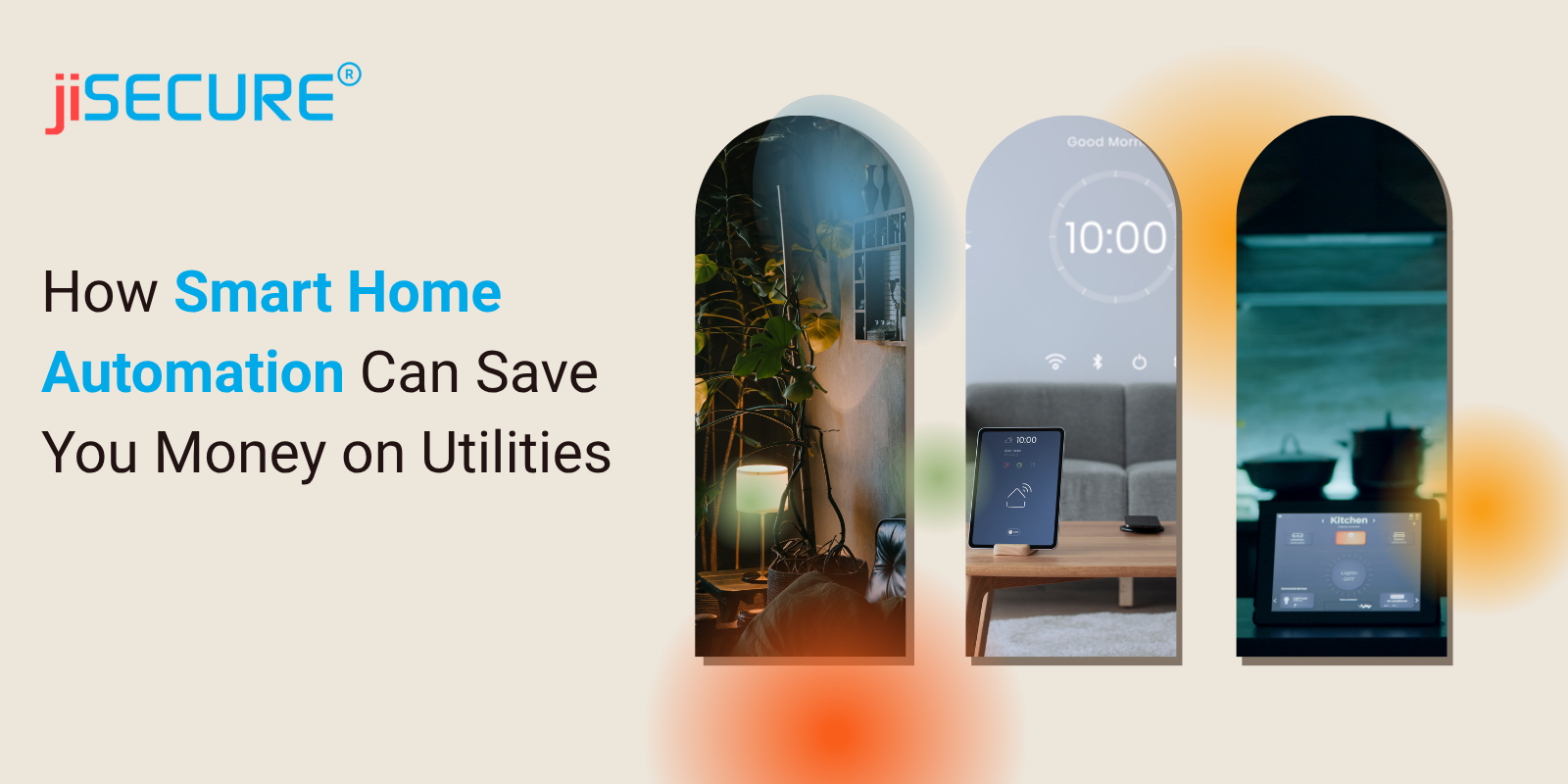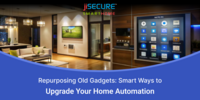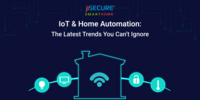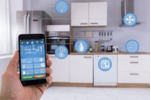- Oct 10, 2025
Share this post on:

In today’s fast-paced world, technology continues to shape the way we live, and smart home automation is at the forefront of this transformation. Imagine controlling your home’s lighting, temperature, and security systems—all from your smartphone. Not only does it enhance convenience, but it can also significantly reduce your monthly utility bills. As we move towards a more energy-conscious society, smart home automation isn’t just a luxury; it’s a smart investment that pays off in the long run.
The rise of smart home solutions has brought about a fundamental shift in how we manage our homes. With intelligent systems designed to optimize energy usage, homeowners can now save money while living more sustainably. From smart switch boards to smart home door locks, today’s technologies are transforming how we approach everything from lighting to security. In this blog, we’ll explore how these advanced technologies can help you cut down on utility costs and create a more efficient home environment.
1. Optimizing Energy Consumption with Smart Home Automation
The primary way smart home automation saves you money is by optimizing energy consumption. Traditional homes often have energy wastage due to manual control over heating, cooling, and lighting systems. With smart living automation, you can set schedules for your HVAC system and lights to run only when needed. This reduces the need for heating or cooling an empty house or leaving lights on when they’re not in use.
For instance, with a smart automation system, you can program your thermostat to lower the temperature when you're not at home and adjust it before you return. This means your HVAC system isn’t working overtime while you’re away, which can significantly reduce your electricity or gas bills.
2. Smart Lighting for Energy Savings
One of the most noticeable aspects of smart home automation is its impact on lighting. Smart bulbs, smart switches, and motion sensors can all work together to ensure that lights are used only when needed. Smart switch boards allow you to control the intensity of the lights, reducing unnecessary energy consumption. Additionally, smart lighting solutions such as LED bulbs are far more energy-efficient than traditional incandescent bulbs.
With smart home automation solutions, you can also set your lights to turn off automatically when you leave the room or when the sun comes up. This automation can save up to 30% on lighting-related energy costs. In fact, integrating smart home solutions for lighting control could potentially cut your electricity bills in half over time.
3. Smart Home Appliances: Saving Energy and Money
Incorporating smart appliances into your home is another excellent way to save on utilities. Whether it’s your refrigerator, washing machine, or water heater, smart automation systems can optimize their use. For example, a smart washing machine can be scheduled to run during off-peak hours, lowering your electricity bill by avoiding high-demand times.
Moreover, smart refrigerators can notify you when doors are left open or when energy consumption is too high, which helps avoid costly mistakes. When these appliances are linked to a central hub through a jiSECURE smart home app, you can monitor their performance, adjust settings, and track energy usage from anywhere, further optimizing their efficiency.
4. Smart Home Heating and Cooling Systems
Heating and cooling are among the largest contributors to a household’s utility bills. With smart home automation solutions, you can program your thermostat to adjust based on your routine. For example, your smart thermostat can be set to lower the temperature at night or when you leave for work and raise it back up shortly before you return. This ensures that your heating or cooling system is never wasting energy unnecessarily.
Another advanced feature is the smart main gate lock controller, which can detect when you’re home and adjust your heating and cooling accordingly. It’s a small yet effective way to ensure your energy is used efficiently. By monitoring temperature fluctuations and adjusting settings in real time, smart home automation can reduce your energy consumption by up to 20%, which can add up to substantial savings over the course of a year.
5. Enhancing Water Efficiency with Smart Technology
Water consumption is another major utility cost that can be managed effectively with smart automation. From smart faucets to water leak detectors, smart technology can help homeowners use water more efficiently. Smart water meters track your consumption in real-time, alerting you to any spikes in usage or leaks that could cause unnecessary waste. These solutions help prevent water wastage and reduce your water bill.
Moreover, integrating smart home solutions with irrigation systems can ensure that your lawn or garden gets watered only when necessary, further reducing water usage. By utilizing smart home automation solutions, you can easily monitor and control water consumption to ensure maximum efficiency.
6. Smart Security: More Than Just Protection
While smart home automation is widely recognized for enhancing security, it also plays a role in reducing utility costs. For example, smart home door locks and smart main gate lock controllers can be programmed to detect when doors or windows are left open, ensuring you never accidentally waste energy by cooling or heating an open house.
Additionally, smart security systems with motion sensors ensure that lights, heating, and cooling systems are only active when the house is occupied. The integration of smart parking solutions also ensures that you don't waste energy searching for parking spaces in crowded areas, as you can monitor available spots through a smart app.
7. Leveraging Smart City Solutions for Greater Savings
As urban areas grow, cities are turning to Smart City Solutions to reduce energy consumption and improve overall efficiency. These solutions include everything from smart streetlights to smart waste management systems. By adopting these technologies at a city level, the overall energy load can be balanced more effectively, reducing the need for individual homes to rely on inefficient systems.
Smart homes, in collaboration with Smart City Solutions, can further integrate these systems to create a network of energy-efficient homes and businesses. For example, a smart home can automatically adjust energy usage based on citywide grid conditions, ensuring that you don’t pay more for energy during peak demand times.
8. Investing in Smart Office Solutions for Cost Efficiency
While this blog focuses on homes, Smart Office Solutions also play a significant role in reducing utility bills for businesses. Whether it's controlling office lighting, heating, or energy usage in shared spaces, smart automation allows businesses to optimize energy consumption. By applying these technologies at home and work, you can enjoy a complete, energy-efficient lifestyle.
Conclusion: The Future of Smart Savings
Integrating smart home automation solutions isn’t just about making your life more convenient; it’s about making it more sustainable and cost-effective. By reducing unnecessary energy consumption, improving the efficiency of appliances, and providing greater control over home systems, smart home technologies allow you to save money on utilities, all while enhancing comfort and security.
With products like the jiSECURE smart home app, smart switch boards, and smart home door locks, it’s easier than ever to incorporate these systems into your daily routine. The benefits of smart living automation extend far beyond just the initial investment—they lead to long-term savings and a greener, more sustainable future.
As the future of home technology continues to evolve, it’s clear that smart home automation will play a key role in helping households and businesses reduce their environmental footprint and lower their utility costs.












